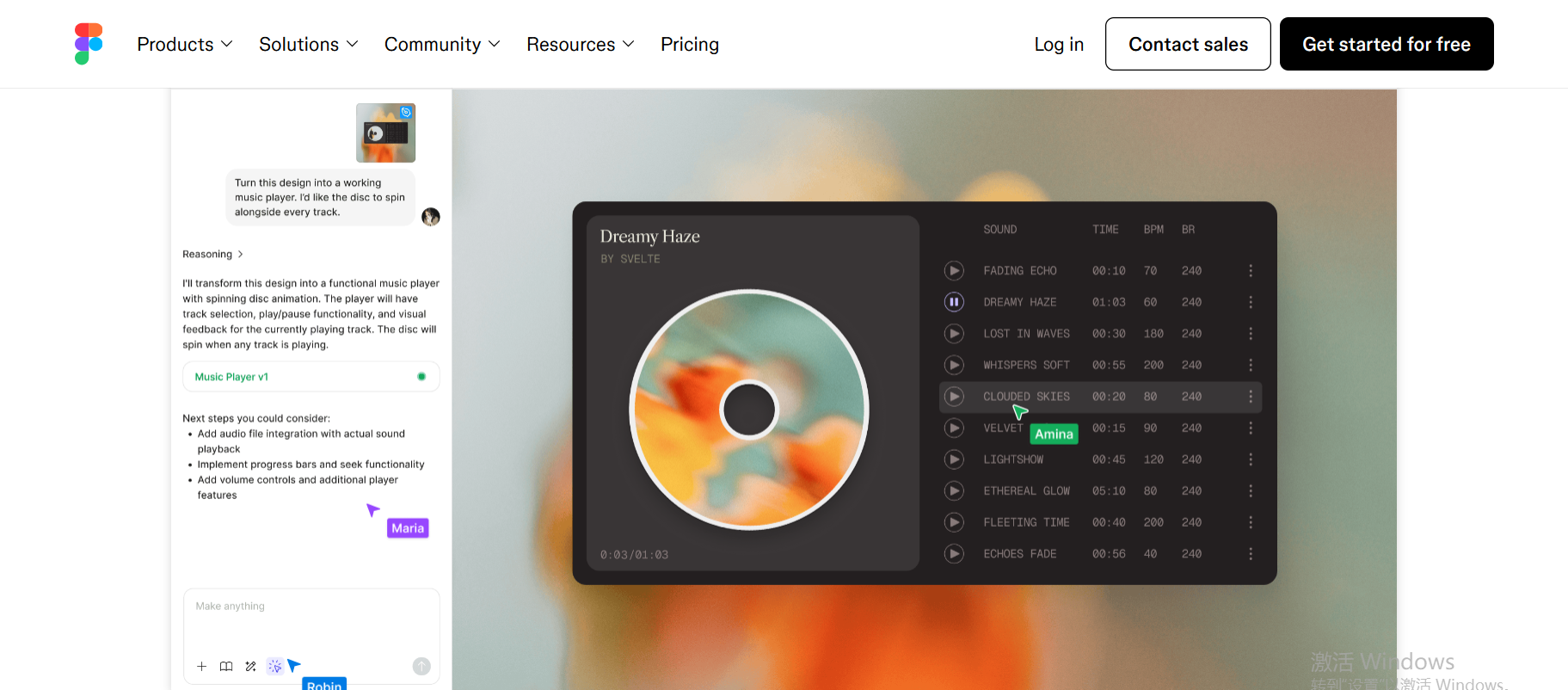Figma (founded 2012, launched 2016) is a browser-based, vector graphics
editor and prototyping tool specializing in real-time multi-user
collaboration.
Mobbin official Website: https://www.figma.com

1. Platform Overview
2020: Introduced Figma Community for template sharing
2022: Adobe attempted acquisition ($20B, blocked by regulators)
2025: Over 85% of Fortune 500 companies adopted Figma
2. Core Technological Innovations
2.1 WebGL-Powered Engine
Unlike traditional tools (e.g., Sketch, Adobe XD), Figma operates entirely on web browsers using:
Conflict-free Replicated Data Types (CRDT) for seamless sync
Delta-based updates reducing latency to <200ms
2.2 Auto Layout 4.0
The 2024-released responsive design system features:
Dynamic content reflow with AI-powered gap prediction
Cross-platform consistency (iOS/Android/Web spacing presets)
3. Collaborative Workflow Breakthroughs
3.1 Live Multiplayer Editing
50+ concurrent editors with cursor tracking
Version history with branching (Git-like workflow)
3.2 Design-Dev Handoff
Code generation for React, SwiftUI, and CSS
Pixel-perfect inspection with unit conversion
4. Enterprise-Grade Solutions
4.1 Figma Organization
SOC 2-compliant admin controls
Plugin sandboxing for security
4.2 FigJam Whiteboarding
Integrated ideation tools support:
AI sticky note clustering
Flowchart-to-prototype conversion
5. Ecosystem & Future Trends
Plugin marketplace (3,800+ plugins as of 2025)
Emerging AI Copilot for design system generation
Growing integration with AR/VR workflows
"Figma’s API-first approach makes it the Figma of design tools—the platform other platforms connect to." — John Maeda, 2024 Design in Tech Report


